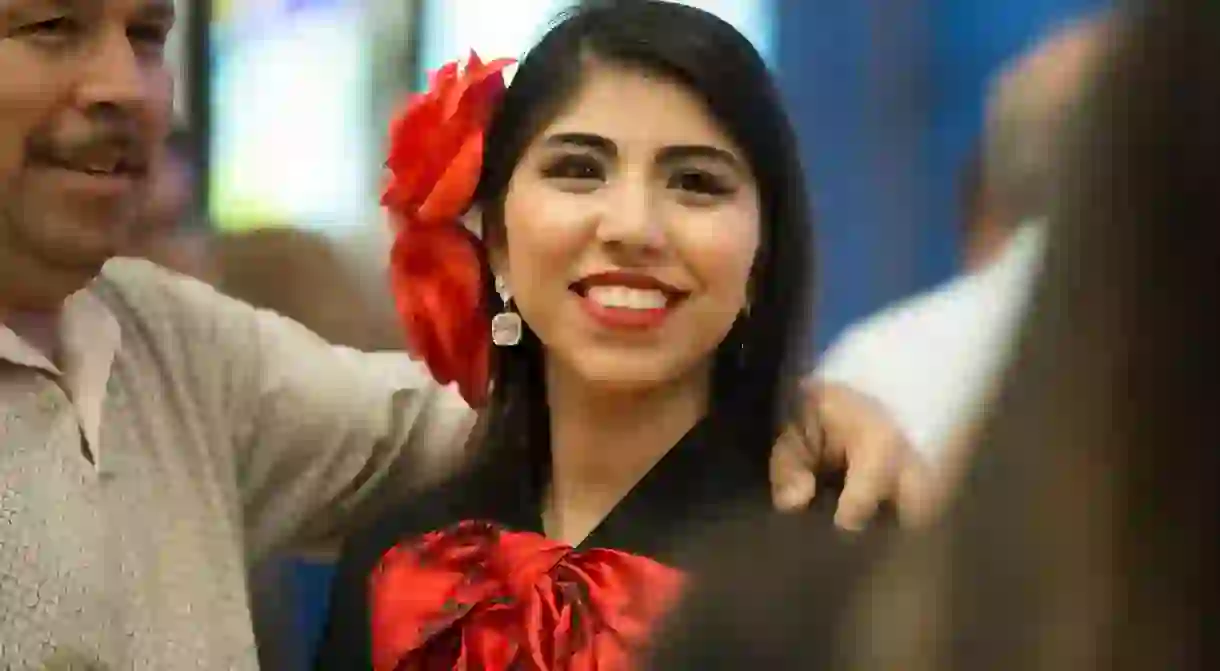Dallas' SOLUNA Festival Reimagines Classical Music for a Progressive Audience

There’s a tonal shift happening within the sonic landscape of Dallas, but not where you might expect. The Big D’s own SOLUNA festival is inviting a new generation of artists to redefine classical music in 2018.
The Dallas Symphony Orchestra launched SOLUNA International Arts + Music Festival in 2014 to challenge traditional notions of classical music and the modes of experiencing it.
One could argue that SOLUNA is indicative of a larger trend in the music culture of Dallas, one of inclusion and genre-bending. The name “SOLUNA” is derived from the Spanish terms for “sun” and “moon,” an indication of the inclusive principles held by festival organizers who facilitate a series of multidisciplinary collaborations between local Dallas musicians and international artists for the annual three-week event.
Challenging traditions and breaking barriers
This year, SOLUNA curators commissioned visual artist Gonzalo Lebrija and Mexican composer Jesús Echevarría to interpret works by German composer Richard Wagner that were performed by Dallas’ all-female mariachi band Las Rosas Divinas at the Moody Performance Hall in downtown Dallas.

Las Rosas Divinas was founded as a result of members’ exclusion from other mariachi bands due to their gender, and whose existence, as a result, challenges traditional notions of who can be included in a mariachi band. For “Mariachi Wagner,” its core group was joined by additional, non-Mariachi musicians, including a harpist, to accommodate the Western tonalities implicit in Wagner’s music.
“Mariachi Wagner” challenged the racism and exclusivity implicit in Wagner’s work, effectively redirecting those associations toward a more inclusive future.

It wouldn’t be the first time that Dallas has seen people come together across racial and cultural borders to enjoy great music. In the 1920s, the Deep Ellum/Central Track neighborhood was a musical destination akin to Nashville, whereby a racially diverse audience converged over their shared love of gospel, folk and blues, attending performances by legendary musicians including Lead Belly and T-Bone Walker.
Carrying on the tradition of inclusivity
This year, SOLUNA kicked off with a dramatic performance by singer-songwriter Sarah Jaffe, the result of a collaboration between herself and multimedia artist Jen Ray, which called into question female archetypes like the “Southern Belle.”
[jwplayer VE815Fpw]
Ray and Jaffe adapted traditional Western folk songs and American iconography to revise racial and gender stereotypes that are historically rooted and exaggerated in the South: “The phrase ‘Eyes As Bright As Diamonds’ derives from a lyric from [Gene Autry’s] ‘The Yellow Rose of Texas,’” Ray told Culture Trip. “The original version is about a relationship between a slave and a biracial woman. It’s just been pounded into different variations over the years. Now it’s thought of as a fun and folksy song about Texas. It’s actually not that at all; all of the songs from the performance are quite melancholic and full of yearning.”

SOLUNA curators also commissioned a site-specific sound sculpture by French sculptor and recording artist Sebastien Leon in the NorthPark Center, a “highbrow” consumer paradise where art and commerce are uniquely incorporated. NorthPark Center’s museum-quality permanent collection includes original pieces by Andy Warhol, Frank Stella and James Rosenquist, all of which are integrated into the consumer environment and positioned throughout the mall. You have to walk under Andy Warhol’s Flower Series in order to enter the Tiffany’s store.

Leon’s sound sculpture, Diffracted Symphony, combines a larger-than-life iron sculpture of a whale carcass’ rib cage with Jonathan Borofsky’s permanent statues of several giant men, whose hammering motions seem a nod to Dallas’ oil-fueled industrial legacy. Playing an altered version of Verdi’s Requiem, the steel-pipe whale projects subtle, ambient noise in one plaza of the expansive shopping center.
Initiatives like SOLUNA International Music + Arts Festival are strengthened by a nuanced awareness of history and a message of inclusion. By inviting a diverse group of artists to revise our histories and celebrate the many textures that define Dallas, SOLUNA has created new points of entry into the classical music genre. Whether they are in the battle-cry of a pop singer, the soaring harmonies of an all-female mariachi band or in the common spaces of a luxury shopping mall, classical music has never been so accessible.













